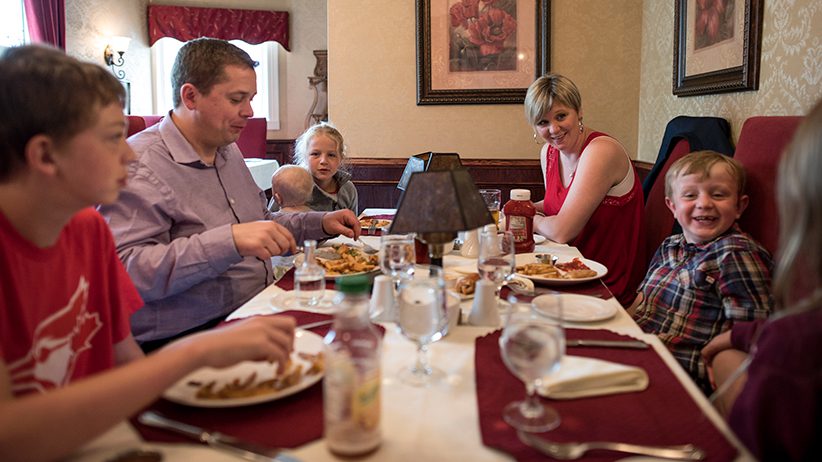When Stephen Harper released a statement on why he let a former MP run in the 2015 federal election despite allegations of sexual misconduct, it generated some nasty feedback.
One-time Liberal strategist Rob Silver, for instance, replied to Harper on Twitter thusly: "I assume the part where you show even an ounce of empathy for a young woman who was working for your party and was sexually assaulted by one of your MPs was edited out because of space constraints?"
Ouch!
That's a harsh comment and yet for leftists such attacks are pretty much par for the course, i.e. they routinely seek to portray conservatives as heartless, soulless, monsters.
Worse for conservatives is that the pop culture industry continually perpetuates and amplifies this anti-conservative stereotype.
Anybody remember a movie or TV show in which a conservative character is portrayed as anything but a callous, insensitive, boor?
At any rate, this obviously presents a real image problem for conservative politicians; I mean, unless, you're campaigning on the planet Vulcan, being perceived as a cold-blooded, compassionless robot clearly puts you at a disadvantage.
So how will federal Conservative Party leader Andrew Scheer deal with this particular challenge?
Well, he has options; in fact, he could choose from a number of tactics conservatives have concocted over the years to offset their perceived lack of empathy.
One method conservatives have tried in the past is to basically have faith that once voters understand what conservatism truly stands for free markets, limited government, individual freedom they will see beyond negative stereotypes and realize that conservative politicians simply want to create a freer and more prosperous society.
In other words, it's just a matter of convincing voters that capitalism is better than socialism, that individualism is better than collectivism, that big government is a threat to liberty.
This was the approach of one time Republican presidential nominee Barry Goldwater who, during his campaign in 1964, brazenly and unapologetically promoted conservative ideology, famously noting, "Extremism in defence of liberty is no vice, moderation in pursuit of justice is no virtue."
Another way conservatives have dealt with their empathy problem is to focus on issues where voters consider empathy a weakness.
And yes, issues like that arise all the time, especially when voters perceive the world to be a dangerous place.
When that happens, when a population gets frightened or anxious, they want a mean SOB in charge, someone with the courage and toughness to do what's right.
Ronald Reagan used this strategy when he branded himself as a leader who would stand up to Soviet Communism "Tear down this wall, Mr. Gorbachev"
Likewise, George W. Bush won the 2004 presidential election when he pushed his anti-terrorist credentials, while the Harper Conservatives found a winning message in 2011 when they promoted a tough on crime agenda.
Also note this strategy works when voters fear for their economic future see Margaret Thatcher and Mike Harris.
And there's one final empathy tactic conservative have employed; it's to play against type by trying to convince voters that conservatives really do care, that they actually have regular-human-style emotions.
Conservatives who go this route call themselves "progressive" conservatives or "compassionate" conservatives and they prove their empathy by supporting the welfare state and various big government social programs.
They basically promise to implement socialism efficiently.
This is the conservatism of Joe Clark and Jean Charest and Brian Mulroney.
And interestingly even Donald Trump has played this game a bit by showing empathy to blue collar American workers, a demographic his Democratic opponents basically ignore.
So which of these strategies is Scheer employing?
Well so far, the answer is none of them.
He isn't acting like a tough guy; he isn't pushing hard-core conservatism; he isn't embracing progressivism.
Instead, Scheer has seemingly come up with a brand new tactic, which might be called "Wrapping conservatism in a blanket of bland."
What I mean is, Scheer has opted to take on the persona of an everyday, normal, suburban middle class dad, in the hopes that this will help him ward off accusations that he's some sort of scary insensitive, mean, brute.
After all, an inoffensive person can't be malicious, right?
So Scheer's motto might be: "Boringness in defence of character is no vice, aggressiveness in pursuit of votes no virtue."
Who knows, it might work.
On the other hand, it's possible voters might have little empathy for a dull leader.








